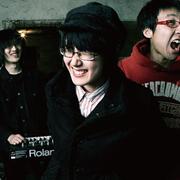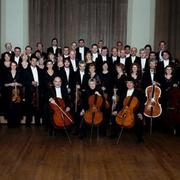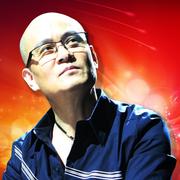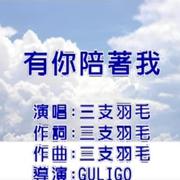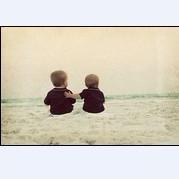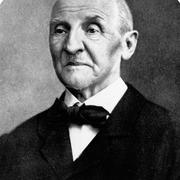Snapline
| 基本信息 | |||
|---|---|---|---|
| 姓名 | Snapline | 别名 | 暂无 |
| 国籍 | 中国 | 出生地 | |
| 语言 | 性别 | 组合 | |
| 生日 | 星座 | ||
| 身高 | 体重 | ||
Snapline也许已经成为,看上去几乎是一夜之间,北京发展最快的年轻乐队,在当地媒体上获得了整篇幅的报道并且在美国发行了他们首张单曲黑胶唱片。Snapline组建于2001年,成员包括主唱陈曦,吉他兼键盘手李青和2005年加入并最终让乐队走上舞台的贝司手李维思。李青和李维思同时也是北京地下乐队Carsick Cars的成员。Snapline的音乐和同时代的北京现实有着直接的联系,以及来自70和80年代的噪音与极简派音乐家的概念,特别集中在那个时期的纽约场景。同时他们也希望探索那个时期来自英国黑暗的,工业音乐风格,特别是像Joy Division和The Cure在荒谬的小和弦上演奏奇异的,由鼓机驱动的音乐。相反,旋律制造者陈曦的演唱为乐队带来了一种更柔和的,更流畅的声音。Snapline的作品试图颠覆人们对于后朋克音乐黑暗病态的判定,他们希望听者理解后朋克是以更大的生存的勇气去思考未来的不必然。当前PIL(Public Image Ltd.)乐队的鼓手和制作人Martin Atkins在2006年底在北京接触到这里的音乐场景时,他为一堆乐队而狂喜,但是却完全因为Snapline的独特而神秘的旋律而叹服,并且立刻坚持来制作他们的第一张唱片。在接下来的几个星期里在北京他们共同录制了一些歌曲,并且接下来的几个月在芝加哥对这些歌曲进行混音,而陈曦也随后飞到芝加哥录制了更多的素材。当这些录音的片段返回到北京的音乐圈时,乐队的演出现场开始挤进了大批的观众,而他们也很快建立起了一批忠实的听众群。在D22的一系列演出使他们很快成为新音乐场景的中心,为评论家和音乐家所喜爱,尽管有时他们仍然会让听众难以捉摸。他们不是很容易就让人喜欢的乐队,但是他们的歌迷充满了忠实的热情并且他们音乐在奇妙的不可预知的方向上不停地发展。2007年的10月,他们在摩登天空音乐节上进行了一场令人眩目的演出,使一部分观众陷入迷惑而使另一部分观众坚定地留在现场,张大了嘴巴,看着陈曦在舞台上狂热的起舞和踱步,而此时李青的奇异的吉他噪音正纠缠着李维思冷漠的贝司线。在这场演出之后,毫无疑问Snapline已经成为了北京音乐爆炸之中的一支关键乐队之一。在中国媒体的许多报道中,乐队在2007年9月被认为是中国最优秀的十支乐队之一,并且在《Rolling Stone》的一篇文章中,李青被认为是最具创新的4位吉他手之一。Snapline have become, almost overnight it seems, perhaps Beijing’s fastestrising young band, in the last year they have taken on an identity allof their own, earned full page interviews in the local media and releasedtheir first 7” single in the US.The band consists of Li Qing on guitar and keyboards and Li Weisi onbass guitar, who met while at students the Beijing Institute of Technology.They had originally joined fellow BIT student Shou Wang to formthe seminal Beijing underground band Carsick Cars, with Li Qing playingdrums and Li Weisi on bass. Their music was dedicated to working outin a contemporary Beijing context the sounds and ideas produced by thenoise and minimalist musicians of the 1970s and 1980, especially focusingon the New York scene of that period.Wanting also explore the dark, industrial music coming out of Englandduring that period, especially from bands like Joy Division and the Cure,the two created a side project, which performed strange, drum-machine-driven music over dark, minor chords. Snapline was soon joinedby Tsinghua University student Chen Xi on vocals and drum machine,who bought a softer, more fluid sound to the band with his delicate andslightly otherworldly singing.When producer and ex-PIL drummer Martin Atkins came to Beijing inlate 2006 to check on the local scene, he was delighted with dozens ofbands, but wholly awestruck by Snapline’s uniquely weird melodies, andimmediately insisted on producing their first CD. Within weeks they hadlaid down the tracks in Beijing and over the next few months began themixing process in Chicago, at one point flying Chen Xi to Chicago to addadditional tracks.As snippets of the recording filtered through the scene in China, theband’s shows started drawing larger crowds, and they soon began todevelop a very strong following. A series of concerts at D22 establishedthem as one of the central bands in the scene, much loved by critics andmusicians, although difficult at times for audiences to follow. They arenot the easiest band to love, but their followers are passionately loyaland their music keeps growing in strange unexpected ways. In October,2007, the performed a stunning set at the Modern Sky festival, drivingaway half the audience in bewilderment and keeping the other halfrooted to the grounds, mouths open, as Chen Xi danced and stumbledfrenetically onstage while Li Qing’s strange and ugly noises dueled withLi Weisi’s relentless bass lines. After that show it was clear to many thatSnapline was one of the key bands in the musical explosion emanatingfrom Beijing.The subject of many articles in the Chinese press, the band was listedin the September 2007 edition of That’sBeijing as one of the ten bestbands in China and in an article in Rolling Stone that same year Li Qingwas listed as one of China’s four major guitar innovators.
 加载评论内容,请稍等......
加载评论内容,请稍等......
